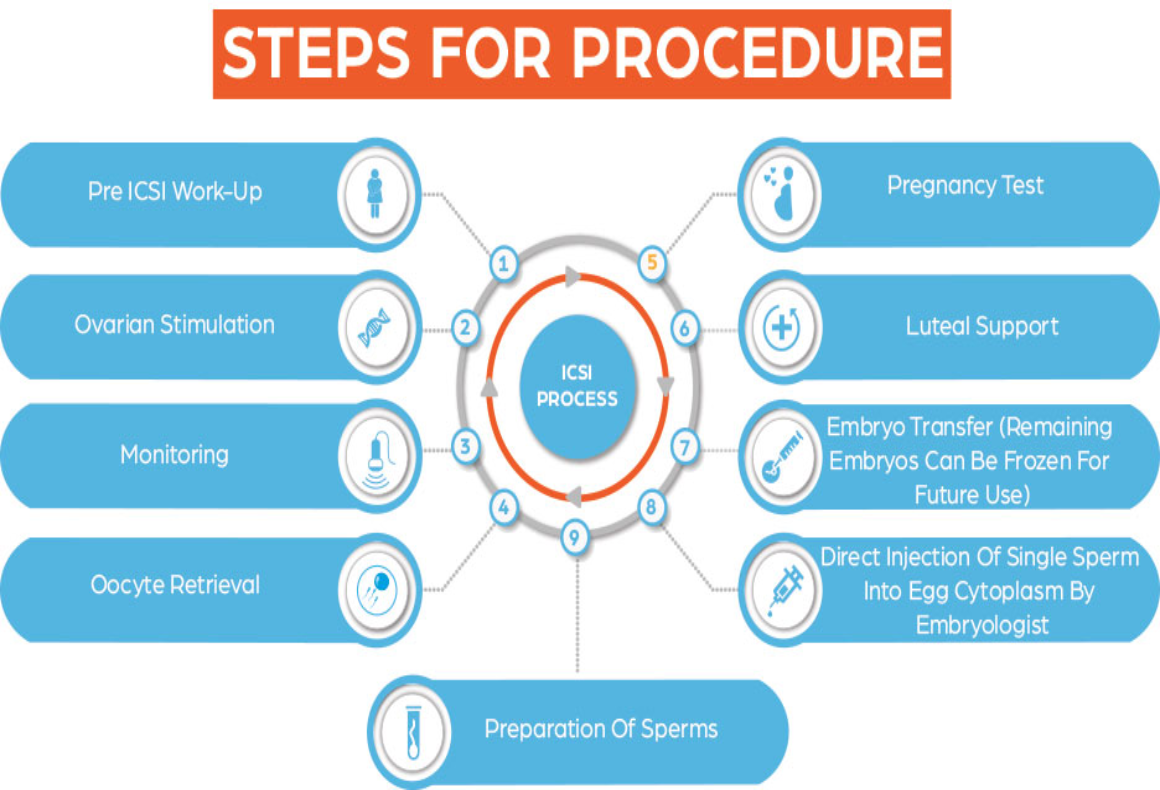Best Gynecologist in Mylapore, Chennai
ICSI - A RAY OF HOPE FOR CHILDLESS COUPLES

Infertility can cause a fair amount of stress and unhappiness. Dr V. Bharathi, Medical Director, Bharati Fertility Center, says, “If a couple has been married just 1-2 years, we encourage them to try to conceive naturally. After one year of trying, we investigate to see if there are any problems and offer minor treatments. There have been significant advances in the diagnosis and treatment of reproductive disorders over the past two decades. This has ensured that almost 80% of infertility cases are effectively addressed.”
Dr V. Bharathi, elaborates on assisted fertilization techniques, particularly ICSI (Intra Cytoplasmic Sperm Injection), which has helped numerous couples overcome infertility and realise their parenthood dreams.
What is ICSI?
ICSI has been a commonly practised treatment protocol since 1992. During this process, the best sperms are selected and directly injected into the egg, thereby increasing the fertilisation rate. In ICSI, fertilisation occurs in nearly 80% of eggs.
In which situations is ICSI advisable?
It is mainly used in cases where there is male infertility, wherein the sperm count is very less, movement of the sperm(motility) is decreased, or the sperm morphology is not ideal. It is also advised in cases of previous failed IVF cycles, where no fertilisation has occurred and unexplained infertility wherein everything is normal and the cause for infertility is unknown. ICSI is also helpful for women of advanced age, where the number of eggs is very less and the AMH is low. For a couple to undergo ART (Assisted Reproductive Technology), the maximum age limit for men is up to 55 years and for women it is up to 50 years.
What is the advantage of ICSI?
The advantage of ICSI over IVF, is that in ICSI one sperm is taken and injected into an egg, whereas in IVF the sperm has to inject the egg by itself. Thus, the fertilisation rate is more in ICSI when compared to IVF. Hence, we prefer this treatment. With ICSI, the live birth rate is 30-40%.
Please elaborate on the ICSI process.
- Couples are asked to visit the clinic on the day 2-3 of periods
- After analysing the detailed history, Antral Follicle Count (AFC) is assessed with a scan and blood levels are checked
- Based on the age, AMH and BMI, the dosage of gonadotropin injections is decided and given for a period of 10-12 days. The gonadotrophins are prescribed to ensure maximum number of eggs, so more embryos can be created and it is helpful for the transfer.
- When the follicle grows to around 18mm, the rupture injection is given
- After 35 hours, egg collection is done and ICSI is undertaken simultaneously
- The embryos are allowed to grow up to five days to a blastocyst, and then frozen. Today, frozen embryo transfer is preferred over fresh embryo transfer.
What is the care advised post ICSI?
It is a myth that the patient needs to be in complete bed rest after embryo transfer. It is treated as a normal pregnancy. However, more progesterone support is given in the first three months of pregnancy. Many patients continue to go to work every day and carry out normal activities. There are no dietary restrictions. Extra care and rest are advised in case of older patients.
<Does ICSI increase chance of twins or babies with birth defects?
Usually, two embryos are transferred, ensuring a higher probability of twins. In recent times, we prefer to transfer a single embryo, which we know is a good blastocyst, to avoid complications throughout pregnancy and ensure the wellness of the mother and baby. In normal pregnancies there is 1.5-3% risk of birth defects. In ICSI, the chances of abnormalities are only slightly higher.
Can embryos remaining after ICSI, be used later?
Yes. They can be used to conceive the 2nd child, if they are preserved by freezing.
Dr V. Bharathi, M.B.B.S., MS(OBG)., FRM
Gynecologist & Infertility specialist,
Medical Director, Bharati Fertility Center
Call: 9791059595


